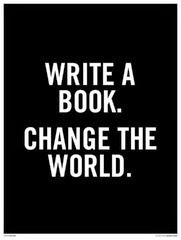Once, there was a girl. A girl who loved to read. She loved to read so much, in fact, that once when she sat down to think about it, she couldn't ever remember just when she couldn't read the written word.
Her mother loved to tell the stories of this girl who loved to learn so much. After story time at their local library, instead of making crafts with the other kids, this girl would go back to the picture books the teacher had just read. "Come over here with us," the teacher would encourage, "We are having fun over here." The girl would just shake her head, her brown curls bouncing. What were crafts when she had books?
And then there was the fateful summer she learned to read. Nobody could say to have truly "taught" her. Her mother taught her the letters, the sounds, the way they fit together to make sounds. But summer came and homeschooling ended. It wasn't until the following September that a small book was pulled out. "Show me what you know," her mother encouraged, hoping she would point out letters, sound them out. Instead:
words
popped
out.
Not lots of words. But words. Full out reading. With no direction. "When did you learn to read?" her mother asked. But the little girl couldn't answer. Before there wasn't words, and now there was words.
But the use of words wouldn't stop at reading for this girl. At the age of twelve, on what she would look back on as a landmark of her life, she spoke these fateful words,
"Mom, I think I want to write a book."
And her mother said what would become so much more than a little encouragement. She said, "Rachael, I think you would be good at that."
Yep, that girl was me. I soaked up words before I even grasped just what they were, what they could do for me. You story might not be as involved. Perhaps you didn't even like reading when you were younger only to now discover what it can do for you.
But what ever your story, I want to encourage you not to let it end here. There could be a turn ahead that takes you off in ways you couldn't imagine before.










